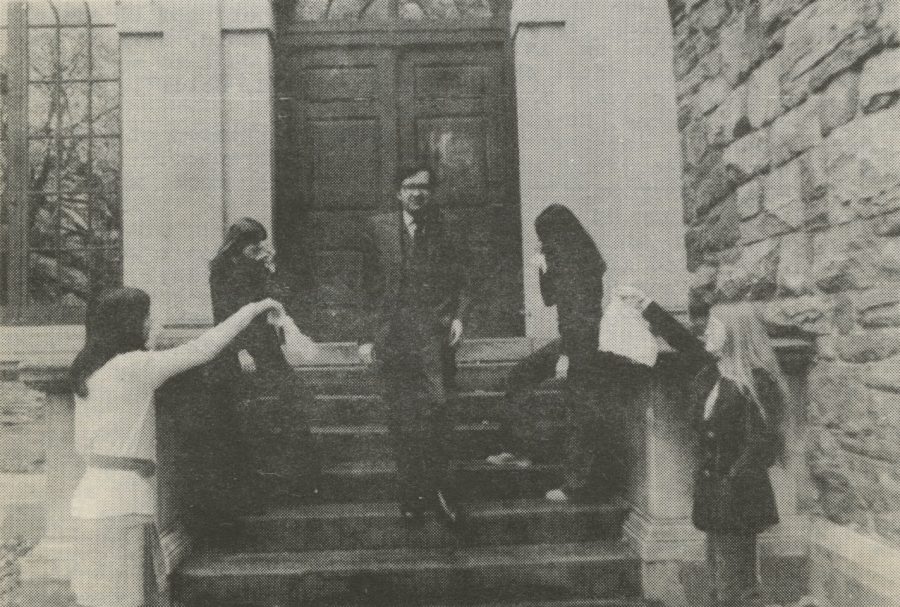The Dial Blast from the Past
Credit: Hackley Archives
Tears were shed at the departure of Mr. Schneller upon his trip to India.
April 6, 2017
In conjunction with the recent Casten Trips to Cuba and Denmark, this issue’s Blast from the Past is from the April 1972 edition of The Dial. Walter Schneller, then Head of the History Department, was The Dial’s first foreign correspondent, sending a letter to the paper’s staff from his travels in India.
Dear Dial,
I am now in New Delhi, but this was written before leaving Bombay on March 18, [1972].
It is easy to write about India and Bombay from the Sea Lounge of the imposing Taj Mahal Hotel which provides one a splendid view of The Apollo Bunder and the Gateway of India Memorial, one of the many great symbols of British rule. From this vantage point the complexities and contradictions of the Indian scene are vividly presented. One is able to gaze into the lobby area and see wealthy Indians strutting about enjoying a very good life indeed, and yet within seconds from the hotel, one may view the most deplorable and extreme poverty imaginable. A few feet from the hotel you may be assaulted by aggressive beggars and sundry people desperately trying to make a living; but this is India, where all aspects of the human situation are vividly thrust at the traveler. Bombay itself is an enormous city (six million population), it is crowded, congested, and has possibly every urban problem imaginable. I cannot imagine what Calcutta must be like. Bombay’s the financial center of India as well as being a major textile manufacturing city; it is also an important port.
Perhaps the most striking feature of the first week in India is the renewed self-confidence and the rather vehement anti-Nixon feeling following the India-Pakistan war, the Anderson disclosures, the Nixon State of the World speech, and his recent press conference. President Nixon is the most unpopular man in India. Everyday in all the newspapers there are innumerable articles and editorials analyzing international relations; much of the writing is quite sophisticated, and I am impressed with the scope of coverage of foreign affairs as well as the interest on the part of the literate Indian public in international affairs.
Now the big stories have to do with the various nation’s recognition of Bangladesh, the coming Kennedy visit, the Nixon trip to China and its meaning to India and the world. Everywhere you have the opportunity to talk to Indians; the big questions are: what is Nixon up to? Will he be re-elected in the fall? Finally there is a growing determination that India must become more self-reliant in all matters.
So that is the picture from Bombay, India. The next report will come from New Delhi. I have also been down to the Communist state of Kerala and Cape Cornorin which is on the very southern tip of the Indian sub-continent.
Sincerely,
Walter Schneller

